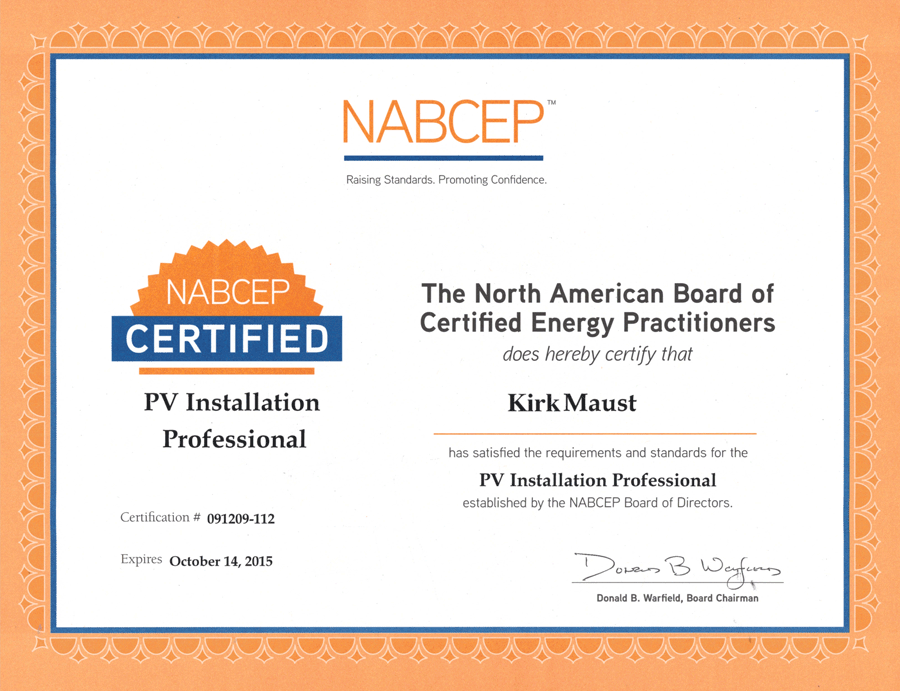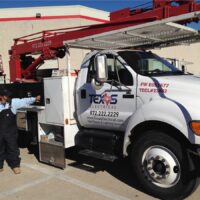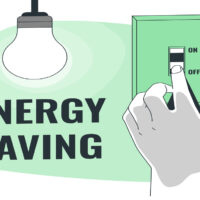Solar certification ensures that solar panels and related equipment meet industry standards for safety and performance. It validates the quality and reliability of solar installations.
Solar certification is crucial for both manufacturers and consumers. Certified solar products guarantee high performance, safety, and reliability, fostering consumer confidence. These certifications often come from recognized bodies like the North American Board of Certified Energy Practitioners (NABCEP) or Underwriters Laboratories (UL).
For manufacturers, certification can be a market differentiator, showcasing their commitment to quality. For consumers, it provides assurance that the products they invest in will perform as expected and comply with industry regulations. Solar certification ultimately supports the growth of the renewable energy sector by promoting trust and standardization.

Credit: www.brilliantharvest.com
Introduction To Solar Certification
Solar Certification is essential in today’s renewable energy sector. It ensures systems and professionals meet specific standards. Understanding Solar Certification helps in making informed decisions.
What Is Solar Certification?
Solar Certification verifies that solar products and installers meet industry standards. These standards ensure safety, efficiency, and reliability. Certification is granted by recognized bodies after rigorous testing.
Importance Of Solar Certification
Solar Certification is crucial for several reasons:
- Quality Assurance: It guarantees high-quality solar systems.
- Safety: Certified systems follow strict safety protocols.
- Efficiency: Ensures optimal performance and energy savings.
- Trust: Builds trust with customers and stakeholders.
| Certification Body | Region | Focus |
|---|---|---|
| UL | North America | Product Safety |
| TÜV | Europe | Quality and Performance |
| CQC | China | Standards Compliance |
Career Opportunities In Solar Energy
The solar energy industry is booming. It offers many career paths. These roles are diverse and rewarding. You can make a difference while earning a good living.
Job Roles And Responsibilities
There are many roles in solar energy. Here are some key positions:
- Solar Panel Installer: Installs and maintains solar panels.
- Solar Engineer: Designs solar energy systems.
- Solar Sales Consultant: Sells solar products to customers.
- Project Manager: Oversees solar projects from start to finish.
- Solar Technician: Repairs and services solar equipment.
Each role has specific tasks. For example, solar engineers must know design software. They also need to understand electrical systems.
Growing Demand In The Market
The demand for solar energy is rising. This growth creates many job opportunities. Here are some facts:
| Year | Job Growth Rate |
|---|---|
| 2020 | 10% |
| 2021 | 12% |
| 2022 | 15% |
More people want green energy. Companies need more workers to meet this demand. This means more jobs for certified professionals.
Getting a solar certification can be your first step. It can lead to a bright future in the solar industry.
Types Of Solar Certifications
Solar certifications are essential for anyone interested in the solar industry. These certifications prove your knowledge and skills. They also make you more attractive to employers. Let’s explore the different types of solar certifications available.
Entry-level Certifications
Entry-level certifications are perfect for beginners. They help you understand basic solar concepts. Here are some popular entry-level certifications:
- North American Board of Certified Energy Practitioners (NABCEP) Associate: This certification covers the basics of solar PV systems. It’s ideal for those new to the industry.
- Solar Energy International (SEI) Solar Professional Certificate Program: This program provides a solid foundation in solar energy. It includes hands-on training and online courses.
These certifications are a great starting point. They can lead to more advanced certifications and job opportunities.
Advanced Certifications
Advanced certifications are for those with experience. They demonstrate a higher level of expertise. Here are some well-known advanced certifications:
| Certification | Description |
|---|---|
| NABCEP PV Installation Professional | This certification is for experienced PV installers. It covers system design, installation, and maintenance. |
| NABCEP PV Technical Sales | This certification focuses on the sales side of solar. It includes customer service, financial analysis, and proposal development. |
| SEI Solar Professionals Certificate | This is a comprehensive program for advanced professionals. It includes in-depth training and real-world projects. |
Advanced certifications can boost your career. They open doors to higher-paying jobs and leadership positions.

Credit: www.solarlightsmanufacturer.com
How To Get Certified
Getting a solar certification can boost your career in the renewable energy field. This guide will help you understand the steps involved. From meeting certification requirements to selecting the right training programs, we’ve got you covered.
Certification Requirements
Before starting, you need to know the basic requirements. Certification bodies often have specific criteria:
- Minimum age: Usually 18 years old.
- Education: High school diploma or equivalent.
- Experience: Relevant work experience in the field.
- Exams: Passing a written and practical exam.
Meeting these requirements is crucial. It ensures you are eligible for certification.
Training Programs And Courses
Training programs are essential for gaining the necessary skills. Here are some popular options:
| Program | Duration | Cost |
|---|---|---|
| Online Solar Training | 6 weeks | $500 |
| Community College Courses | 1 semester | $1,200 |
| Certification Bootcamps | 1 week | $1,000 |
Choose a program that fits your schedule and budget. These courses cover essential topics like:
- Solar panel installation
- System design
- Maintenance and troubleshooting
Completing a reputable course increases your chances of passing the certification exam. It also equips you with hands-on experience.
Benefits Of Solar Certification
Solar certification can open many doors in your career. This certification brings several benefits that can enhance your professional journey. From career advancement to increased earning potential, the advantages are plenty.
Career Advancement
Getting a solar certification can significantly boost your career. This certification demonstrates your expertise in the solar industry. It makes you a more attractive candidate for employers. With this certification, you can apply for advanced job roles.
- Enhanced job prospects
- Eligibility for senior positions
- Recognition as an expert in solar technology
Many companies prefer hiring certified professionals. They trust certified experts for critical tasks. You can also explore leadership roles in projects. Your certified skills make you a valuable asset to any team.
Increased Earning Potential
A solar certification can lead to a higher salary. Certified professionals often earn more than their non-certified peers. This certification shows your commitment to the field. Employers value this dedication and expertise.
| Job Role | Average Salary (Non-Certified) | Average Salary (Certified) |
|---|---|---|
| Solar Installer | $40,000 | $50,000 |
| Solar Project Manager | $70,000 | $85,000 |
| Solar Engineer | $80,000 | $95,000 |
With a solar certification, you can negotiate better pay. It also opens doors to higher-paying job roles. Your expertise can lead to bonuses and other financial perks.
In summary, a solar certification offers many benefits. It can advance your career and increase your earning potential. Investing in this certification can be a smart move for your future.
Top Organizations Offering Certifications
Solar certification is key for anyone pursuing a career in the solar industry. Getting certified by recognized organizations boosts your credibility and skills. Below are some top organizations offering certifications.
Leading Certifying Bodies
Several leading bodies offer trusted solar certifications. These organizations provide a variety of programs to meet industry standards.
- North American Board of Certified Energy Practitioners (NABCEP): NABCEP is a widely recognized certifying body. They offer certifications for PV installers, designers, and inspectors.
- International Association of Electrical Inspectors (IAEI): IAEI offers certifications for electrical inspectors. Their courses cover solar system installations.
- Solar Energy International (SEI): SEI provides a range of solar training programs. They offer certifications for both beginners and professionals.
Accredited Training Institutions
Accredited institutions provide training and certification programs. These institutions ensure you meet industry standards.
| Institution | Programs Offered |
|---|---|
| Solar Training Network | Offers online courses and hands-on training |
| Solar Energy International (SEI) | Provides beginner and advanced solar courses |
| Midwest Renewable Energy Association (MREA) | Offers workshops and certification programs |
Choosing the right institution is crucial. Ensure the institution is accredited and recognized.
Challenges And Considerations
Getting a solar certification involves various challenges and considerations. This journey is not always straightforward. It demands time, effort, and financial investment. Let’s dive into some critical aspects.
Cost And Time Investment
The cost of acquiring a solar certification can be significant. Training programs and exams often come with hefty fees. Additionally, there are costs for study materials and potential travel expenses.
Time investment is another major factor. Completing a certification program can take weeks or months. This requires a considerable amount of dedication. Many professionals balance this with their regular jobs. This can lead to a packed schedule.
| Expense Type | Estimated Cost |
|---|---|
| Training Programs | $500 – $2,000 |
| Exam Fees | $200 – $800 |
| Study Materials | $100 – $300 |
| Travel Expenses | Varies |
Keeping Up With Industry Changes
The solar industry evolves rapidly. New technologies and regulations emerge regularly. Staying updated is crucial for certified professionals.
Continuous education is often required. This involves attending workshops and webinars. Professionals must also read industry publications. This helps them stay informed about the latest trends.
Key strategies to stay updated include:
- Joining professional organizations
- Subscribing to industry newsletters
- Participating in online forums
Adapting to new standards ensures that their skills remain relevant. This is essential for career growth in the solar industry.

Credit: www.solardirect.com
Future Of Solar Energy Careers
The future of solar energy careers is bright. With rising demand for clean energy, job opportunities are increasing. Solar certification can open many doors in this field. New jobs are emerging every day.
Technological Advancements
Solar technology is advancing rapidly. Innovations make solar panels more efficient. New battery storage solutions are emerging. These advancements create new job roles. Solar engineers and technicians are in high demand. They need to understand the latest technologies.
There are jobs in solar research and development. Companies need experts to improve solar products. Software developers are also needed. They help create smart solar solutions. These solutions can optimize energy use.
Policy And Regulatory Impacts
Policies and regulations play a big role in solar energy. Governments are pushing for more renewable energy. This creates more jobs in the solar sector. Regulatory compliance is important. Companies need experts to navigate these regulations. This means job opportunities for solar policy analysts and regulatory specialists.
Tax incentives and subsidies also impact the industry. They encourage more people to install solar panels. This increases demand for solar installers and sales professionals. These jobs require certification and expertise.
Frequently Asked Questions
What Is Solar Certification?
Solar certification is an official recognition of knowledge and skills in solar energy systems. It ensures professionals meet industry standards.
Why Is Solar Certification Important?
Solar certification is important because it guarantees expertise and compliance with safety standards. It also boosts consumer confidence.
How Do I Get Solar Certified?
To get solar certified, you need to complete accredited training programs. Passing a certification exam is also required.
What Are The Benefits Of Solar Certification?
Benefits include increased job opportunities, higher credibility, and compliance with industry standards. It also ensures quality installations.
Conclusion
Obtaining a solar certification boosts your career in the renewable energy sector. It enhances your credibility and expertise. Embrace the future of clean energy by getting certified. Stay ahead in the competitive market. Invest in your professional growth with solar certification.
Start your journey toward a sustainable future today.



